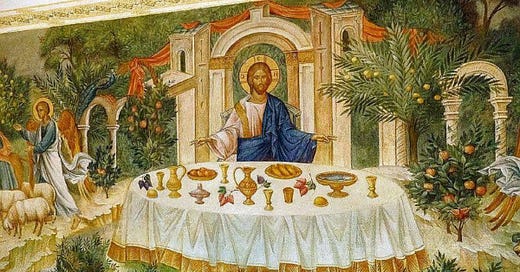Jesus as Host
Reflecting on the Twelfth Sunday after Pentecost: Three Days after Sunday (Year C)
Scripture (semicontinuous)
Psalter: Psalm 58
Old Testament: Jeremiah 3:15-25
Gospel: Luke 14:15-24
Scripture (complementary)
Psalter: Psalm 119:65-72
Old Testament: Isaiah 57:14-21
Gospel: Luke 14:15-24
___
Prayer
Lord God, friend of those in need, your Son Jesus has untied our burdens and healed our spirits. We lift up the prayers of our hearts for those still b…
Keep reading with a 7-day free trial
Subscribe to Faith Seeking Understanding to keep reading this post and get 7 days of free access to the full post archives.




